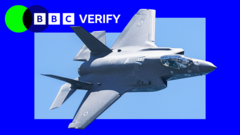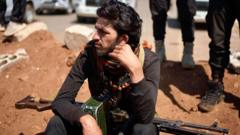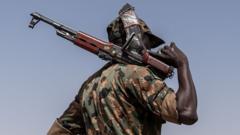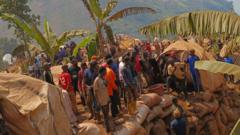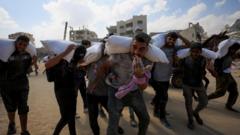The World Health Organization has called for immediate action against Israeli military strikes in Gaza, which have severely disrupted humanitarian operations and endangered civilian lives.
WHO Strongly Condemns Israeli Military Actions in Gaza Amid Humanitarian Crisis

WHO Strongly Condemns Israeli Military Actions in Gaza Amid Humanitarian Crisis
International agency highlights severe impacts on health services and civilian safety.
In a strong denunciation, the World Health Organization (WHO) has condemned Israeli military actions that have jeopardized humanitarian efforts in central Gaza, particularly after recent attacks on its facilities. The WHO reported that an assault on a staff residence in Deir al-Balah occurred on Monday, resulting in the detention of one of its employees. Israeli forces, while on the ground, carried out operations that led to significant civilian displacement and a worsening humanitarian crisis, including a concerning spike in malnutrition cases, according to the Palestinian health ministry.
The WHO emphasized the alarming impact of the Israeli offensive, which is the first major ground operation in this area since the conflict escalated. During the offensive, it was reported that 33 individuals, including children, succumbed to malnutrition in just 48 hours and that the overall health system in Gaza is on the brink of collapse. The organization's main warehouse was not only attacked but also looted, further crippling their capacity to deliver critical health services.
In response to the offensive, the Israeli Defense Forces (IDF) stated that the military action was aimed at dismantling "terrorist infrastructure," while also asserting that they took measures to warn civilians prior to strikes. However, reports indicate that significant civilian casualties have already been incurred, with multiple fatalities and injuries among those seeking refuge in tents and makeshift shelters.
Concerned international leaders, along with the UN, have expressed grave worries regarding the deteriorating situation in Gaza, describing conditions as dire and fraught with risk for civilians who have already been displaced multiple times. With the WHO's operations compromised, access to healthcare becomes an increasingly distant dream for the majority of the population, further exacerbating the humanitarian disaster. Despite the ongoing conflict, calls for international media access to the region continue, emphasizing the need for transparency and awareness of the challenges faced by those living amidst the turmoil.
As the conflict unfolds, the urgency for coordinated international humanitarian efforts and greater protections for civilians remains critical, as healthcare facilities are systematically targeted and essential services are wrought with challenges amidst escalating violence.
The WHO emphasized the alarming impact of the Israeli offensive, which is the first major ground operation in this area since the conflict escalated. During the offensive, it was reported that 33 individuals, including children, succumbed to malnutrition in just 48 hours and that the overall health system in Gaza is on the brink of collapse. The organization's main warehouse was not only attacked but also looted, further crippling their capacity to deliver critical health services.
In response to the offensive, the Israeli Defense Forces (IDF) stated that the military action was aimed at dismantling "terrorist infrastructure," while also asserting that they took measures to warn civilians prior to strikes. However, reports indicate that significant civilian casualties have already been incurred, with multiple fatalities and injuries among those seeking refuge in tents and makeshift shelters.
Concerned international leaders, along with the UN, have expressed grave worries regarding the deteriorating situation in Gaza, describing conditions as dire and fraught with risk for civilians who have already been displaced multiple times. With the WHO's operations compromised, access to healthcare becomes an increasingly distant dream for the majority of the population, further exacerbating the humanitarian disaster. Despite the ongoing conflict, calls for international media access to the region continue, emphasizing the need for transparency and awareness of the challenges faced by those living amidst the turmoil.
As the conflict unfolds, the urgency for coordinated international humanitarian efforts and greater protections for civilians remains critical, as healthcare facilities are systematically targeted and essential services are wrought with challenges amidst escalating violence.



